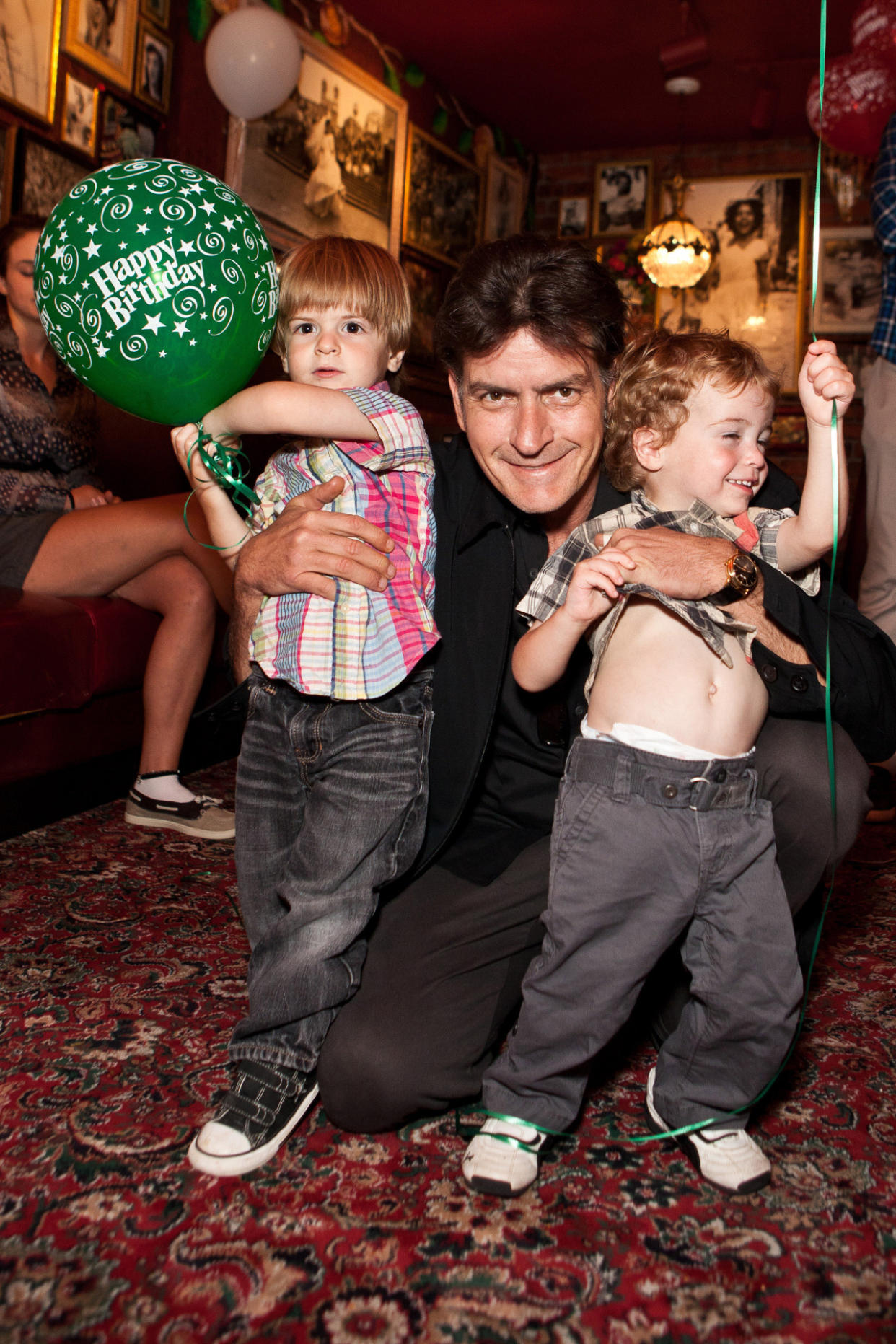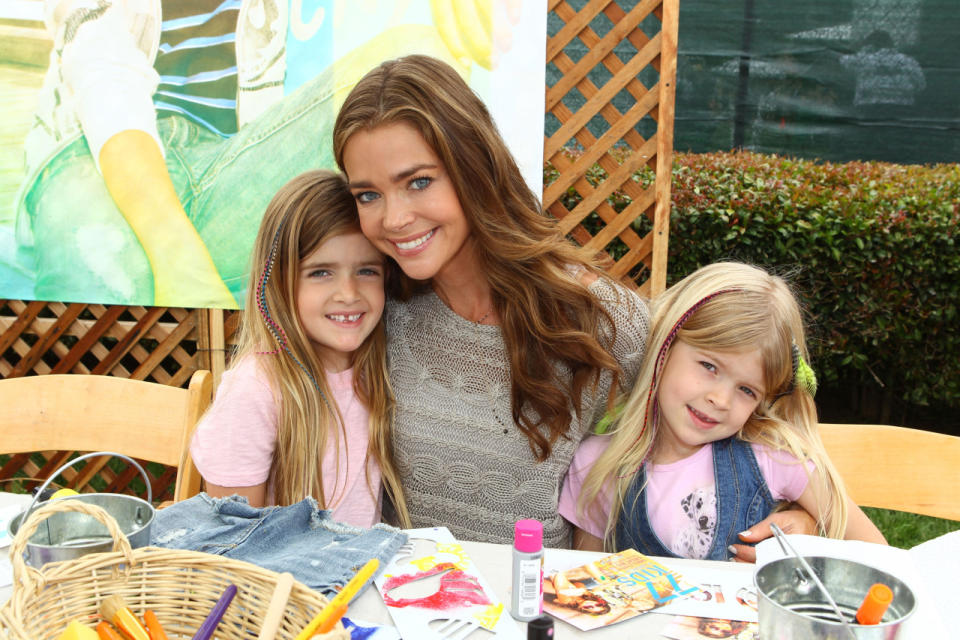What’s Next for Charlie Sheen’s Children?

Actor Charlie Sheen stunned the world Tuesday morning when he revealed on the Today show that he is HIV positive. Sheen, 50, told host Matt Lauer that he was diagnosed about four years ago, and only a small number of people in his inner circle knew.
Sheen also confessed that he wound up paying upwards of $10 million when people he had trusted with his secret threatened to reveal it. He decided to publicly announce his condition to stop the “shakedowns” he has experienced.
Story: 5 Lies Parents Should Never Tell Kids
But now that the news is out, how will Sheen explain this serious diagnosis to his kids?
Story: What Holly Madison Wants Her Daughter to Learn From Her Playboy Past
Sheen has two daughters, Sam, 11, and Lola, 10, with ex-wife Denise Richards, and twin boys, Bob and Max, with ex-wife Brooke Mueller. He also has an older daughter, Cassandra Estevez, 30, from a high school girlfriend, Paula Speert, according to E! Online.
A source told Access Hollywood that Richards has known for years that Sheen is HIV positive and that he contracted the virus after he and Richards were already divorced.
Mueller’s rep, Steve Honig, told Hollywoodlife.com: “Brooke has been inundated with calls from friends and family. To put their minds at ease, Brooke can confirm that she and the boys are not HIV positive.”
The actor told Lauer he already shared his HIV status with his oldest child, Cassandra. “It hit her hard, but she recovered,” he said. “She’s tough like her dad.”
He added: “I said, ‘I’m sorry I didn’t tell you sooner, but it didn’t seem like you could do anything for me, and I didn’t want to burden you with all the stress.’ But she was a rock star about it.”

When a parent has been keeping a big health-related secret, as in Sheen’s case, it’s possible that children already sense something is going on, according to JD Davids, managing editor of Thebody.com, an HIV/AIDS resource site, and founder and executive director of CHAMP (Community HIV/AIDS Mobilization Project). “Sometimes it can be a relief [to share the information],” Davids tells Yahoo Parenting.
Now that Sheen has come forward, he may also want to explain to his kids why he felt he needed to keep his diagnosis a secret. “[Such as saying,] ‘Not everyone understands, which is why we chose to keep it in the family,’” suggests Davids. “You’re arming your kids for what they may encounter [from others], so they don’t have to take on the shame and blame. The problem today isn’t treatment — it works. It’s the stigma.”
Davids says it’s important for parents to have open communication with children about HIV in an age-appropriate way. “It’s our responsibility to understand our own children, their developmental age, and their own specific personalities and ways of understanding and dealing with the world when explaining it to them,” she says. “We want to explain it to them in a way that doesn’t perpetuate shame or fear. We can refer to other family members living with chronic conditions like diabetes and others who take medication every day, approaching it in that straightforward way.”
That’s because HIV in the U.S. isn’t the death sentence it used to be. “Today, most people living with HIV who get treatment will have a normal lifespan,” says Davids. “[Parents can explain,] ‘It used to be a really scary thing where there wasn’t medicine and we lost a lot of people. People are still really scared by that. It’s different today — people can take medicine that keeps them healthy.’”
Photos: Getty Images
Please follow @YahooParenting on Facebook, Twitter, Instagram, and Pinterest. Have an interesting story to share about your family? Email us at YParenting (at) Yahoo.com.


